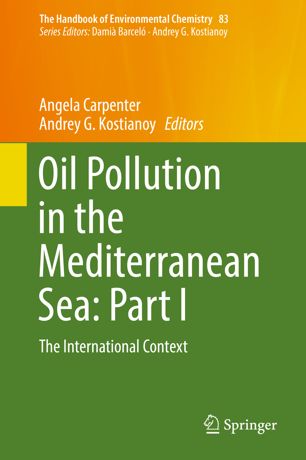

Most ebook files are in PDF format, so you can easily read them using various software such as Foxit Reader or directly on the Google Chrome browser.
Some ebook files are released by publishers in other formats such as .awz, .mobi, .epub, .fb2, etc. You may need to install specific software to read these formats on mobile/PC, such as Calibre.
Please read the tutorial at this link. https://ebooknice.com/page/post?id=faq
We offer FREE conversion to the popular formats you request; however, this may take some time. Therefore, right after payment, please email us, and we will try to provide the service as quickly as possible.
For some exceptional file formats or broken links (if any), please refrain from opening any disputes. Instead, email us first, and we will try to assist within a maximum of 6 hours.
EbookNice Team

Status:
Available4.4
13 reviewsThis volume offers a review of oil inputs to the Mediterranean Sea from sources such as shipping, and offshore exploration and exploitation activities. It discusses international measures to prepare for, respond to, and prevent oil pollution incidents, as well as the international legal framework and agencies with a role in pollution prevention and responses. It includes chapters on modeling the fate of oil pollution, oil spill response, and oil spill beaching probability, and presents data from a range of sources, including historic data on shipping accidents and oil exploration and exploitation activities, satellite and remote sensing data, and numerical modelling data, to provide an overview of oil pollution over several years. Topics covered include modelling of oil slicks in the eastern and western Mediterranean basins, oil exploration and exploitation activities in the waters of the Levantine Basin (Eastern Mediterranean), and signatures to and ratification of the Barcelona Convention and its Protocols, for example.
Together with the companion volume Oil Pollution in the Mediterranean Sea: Part II - National Case Studies, it addresses both national and international measures in the region, making it of relevance to the agencies and government bodies tasked with remediating or preventing oil pollution, as well as policymakers and practitioners in the fields of shipping, ports and terminals, oil extraction and marine management. It provides researchers with essential reference material on tools and techniques for monitoring oil pollution, and serves as a valuable resource for undergraduate and postgraduate students in the field of marine oil pollution.